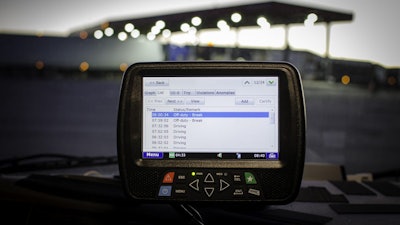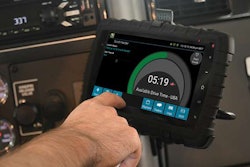
A bill has been filed in the U.S. House to delay the compliance date of the federal government’s electronic logging device two years, to December 2019.
If enacted, carriers would have two additional years to adopt electronic logging devices.
The legislation was introduced Tuesday and referred to the House’s Transportation and Infrastructure Committee.
Texas Republican Rep. Brian Babin filed the bill, dubbed the ELD Extension Act of 2017. Babin’s introduction of the bill came a day after a House panel recommended that the U.S. DOT study whether a “full or targeted delay” of the mandate is needed. Both developments signal that efforts to engage Congress on the issue have gained traction.
In a report issued Monday, members of the House cited the burden placed on smaller carriers, like owner-operators, and questions surrounding enforcement and “technological concerns” as reasons to delay the ELD mandate.
For Babin’s ELD delay bill to become law, it must be passed by the House and Senate and signed by President Trump.
Other than being passed as a standalone bill, the legislation could also be attached to broader legislation, such as the DOT appropriations bills currently in the works in both chambers of Congress.
Lawmakers have used the DOT funding bills as avenues to enact trucking policy reforms in recent years, such as the reversal of some of the hours of service changes implemented in 2013.










